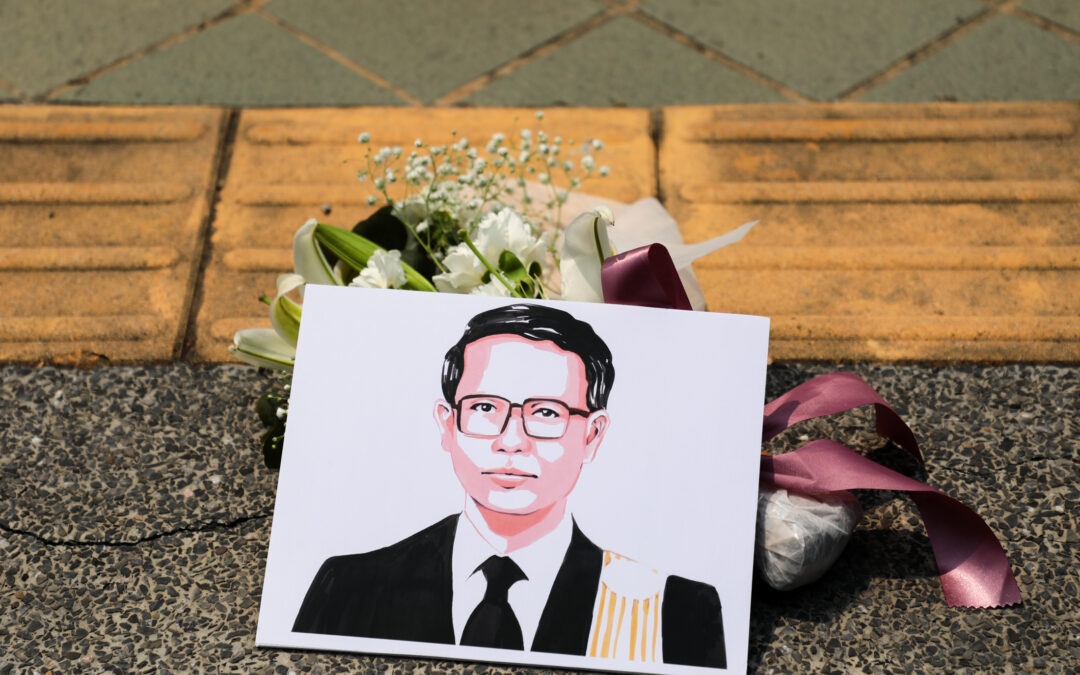
Thailand: ICJ calls for justice on 20th anniversary of Somchai Neelapaijit’s enforced disappearance
On 11 and 12 March 2024, the International Commission of Jurists (ICJ) co-hosted a forum titled, “Enforced Justice Instead of Disappearances” to commemorate the 20th anniversary of the enforced disappearance of prominent lawyer and human rights defender Somchai...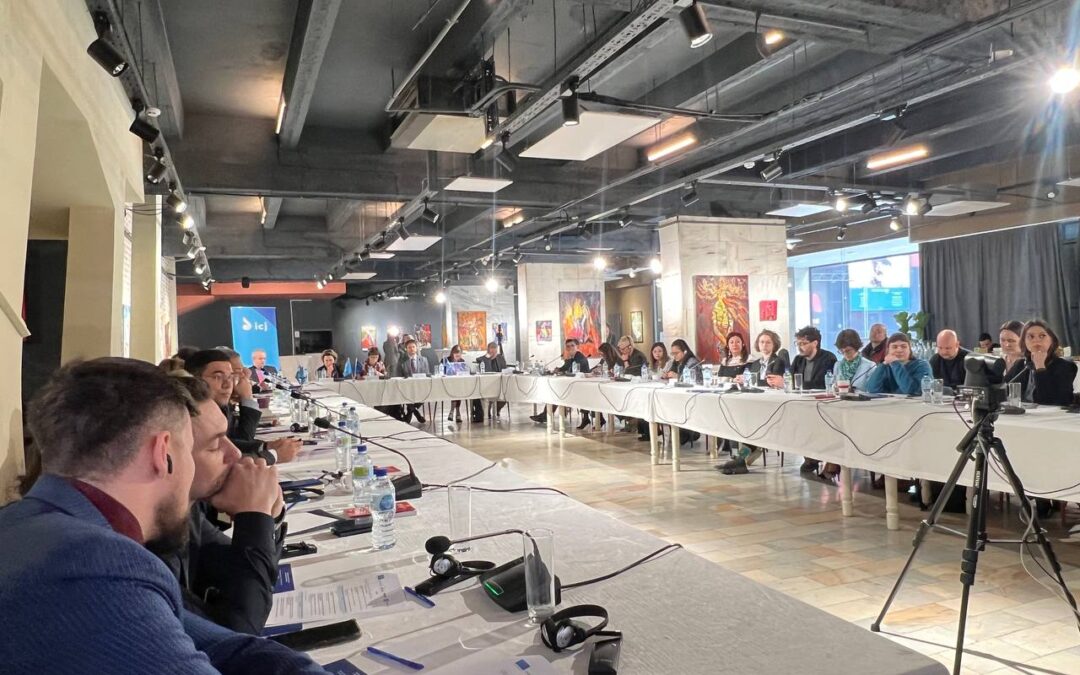
Uzbekistan: Expert discussion on advancing cultural rights and artistic expression
On 11 March 2024, the International Commission of Jurists (ICJ), the “Yuksalish” Movement, Mark Weil’s “Ilkhom” Theatre and United Nations Educational, Scientific and Cultural Organization (UNESCO) held an international public discussion on “Advancing Cultural Rights...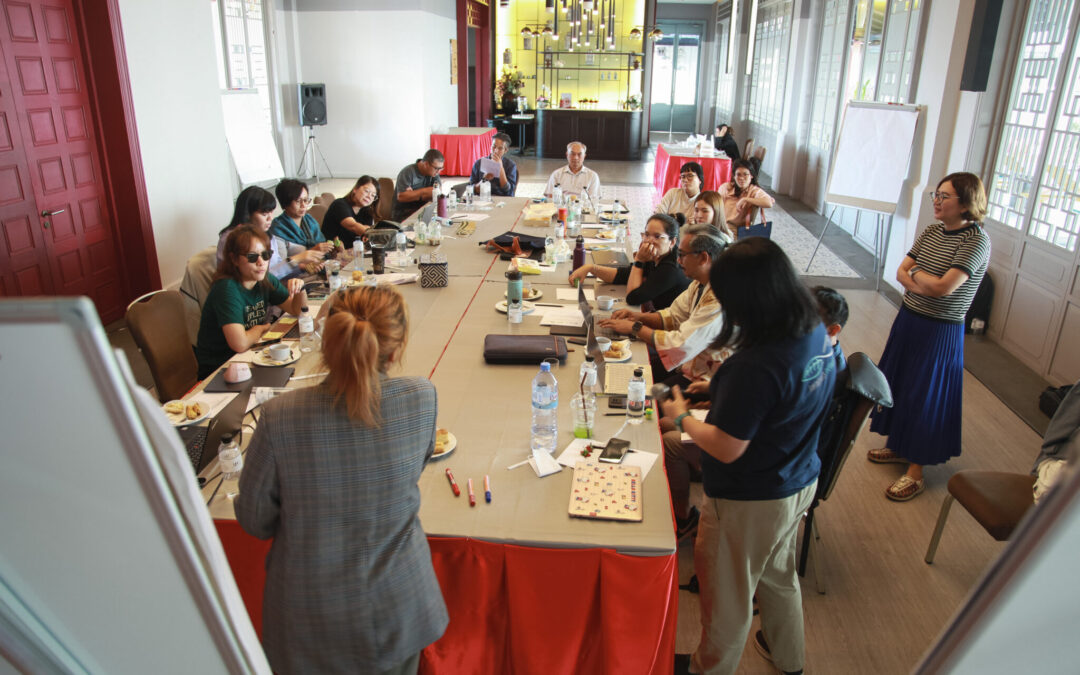
Thailand: regulatory framework to ensure Thai companies’ accountability for human rights abuses abroad needed
On 21-22 February 2024, the International Commission of Jurists (ICJ), in cooperation with the Extra-Territorial Obligation Watch Coalition (ETO Watch Coalition) and the Foundation for the Environment and Natural Resources, organized a workshop with members of civil...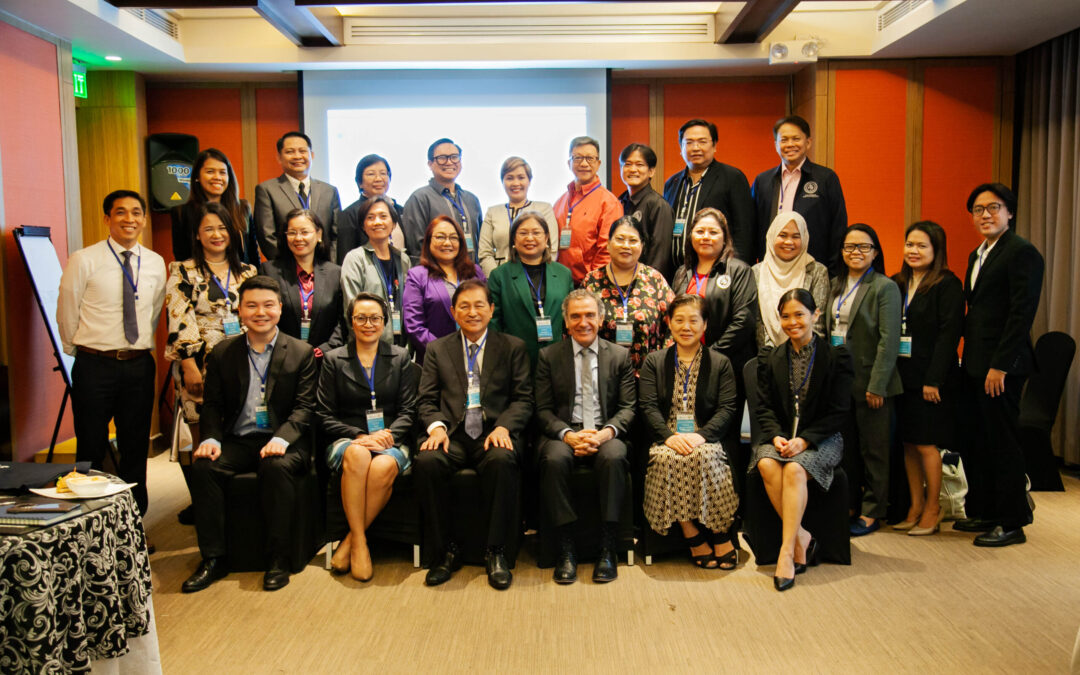
Philippines: Public prosecutors are critical to protecting human rights in the digital space
On 5 – 6 December 2023, the International Commission of Jurists (ICJ) co-organized a workshop, with the Department of Justice (DOJ) of the Philippines, on ensuring the protection of human rights in the online sphere under international human rights law.
The workshop was aimed at enhancing the capabilities of public prosecutors to integrate into their work the relevant international human rights law and standards pertaining to human rights in the online space.
“More than forty percent of our time each day is now spent connected to the internet. This has changed our lives. New technologies have also engendered new challenges for the fulfilment of human rights,” stressed Santiago Canton, ICJ Secretary General, during his opening remarks. “International human rights law provides the framework for us to better understand and respond to these new developments.”
Expert international and Filipino participants reaffirmed the pivotal role that public prosecutors play in protecting and promoting human rights in the digital sphere.
“This workshop was scheduled to coincide with the National Human Rights Consciousness Week in the Philippines, and the inauguration of the DOJ’s Human Rights Office, as part of our efforts to integrate human rights-based approaches into our prosecutorial work,” said Prosecutor Hazel C. Decena-Valdez, OIC Senior Deputy State Prosecutor, Department of Justice, noting the particular timeliness of the workshop in her opening remarks.
Participants raised concerns about human rights violations and abuses perpetrated in digital spaces, including the particular risks experienced by individuals from certain groups, such as children and women.
“The risks of violations or abuses of children’s rights in the digital environment include exposure to unlawful or harmful contents, and online bullying, threats, attacks, punishment, censorship and digital surveillance,” highlighted ICJ Commissioner Mikiko Otani, Former Chair of the UN Committee on the Rights of the Child. “The role of prosecutors in securing the rights of the child in digital environments is very important, by holding perpetrators of violations accountable, and protecting child victims from secondary victimization.”
The participants discussed the numerous challenges they face when prosecuting cases impacting human rights in the digital space, and mapped out how to better integrate international human rights law and standards into their investigatory and prosecutorial work in order to ensure access to justice and effective remedies.
Some of these challenges include how to: handle criminal cases based on domestic laws that conflict with international human rights law; ensure that there is accountability for violations and abuses of human rights online; and prevent biases and stereotyping, such as those based on gender, when investigating and prosecuting cases.
“Prosecutors should ensure that they develop protocols to help eradicate structural gender bias, and ensure gender-responsive approaches to their work. This includes preventing revictimization and ensuring confidentiality when handling cases,” underscored Melissa Upreti, ICJ Regional Director for Asia and the Pacific. “Online violence should not be distinguished as a lesser crime, and the human rights implications of online gender-based violence must be fully recognized.”
Contact
Melissa Upreti, ICJ Regional Director, Asia and the Pacific, e: melissa.upreti@icj.org
Daron Tan, ICJ Associate International Legal Adviser, e: daron.tan@icj.org
Caleen Obias, ICJ National Legal Consultant, e: caleen.obias@icj.org
Background
The workshop was attended by 22 public prosecutors from the Department of Justice.
The key thematic issues discussed during the workshop were:
- The right to online freedom of expression and information;
- Domesticating international human rights law;
- Protecting children’s rights online;
- Protecting women’s rights online; and
- Court technologies, access to justice and impacts on the right to a fair trial.
The speakers at the workshop were:
- Santiago Canton, Secretary General, ICJ;
- Prosecutor Hazel C. Decena-Valdez, OIC Senior Deputy State Prosecutor, Department of Justice;
- Justice Adolfo Azcuna, ICJ Commissioner; Justice, Supreme Court (Ret.); Chancellor Emeritus, Philippine Judicial Academy;
- Mikiko Otani, ICJ Commissioner; Member and Former Chair, UN Committee on the Rights of the Child;
- Melissa Upreti, Regional Director for Asia and the Pacific, ICJ; and
- Atty. Oliver Xavier Reyes, Senior Lecturer, University of the Philippines College of Law.
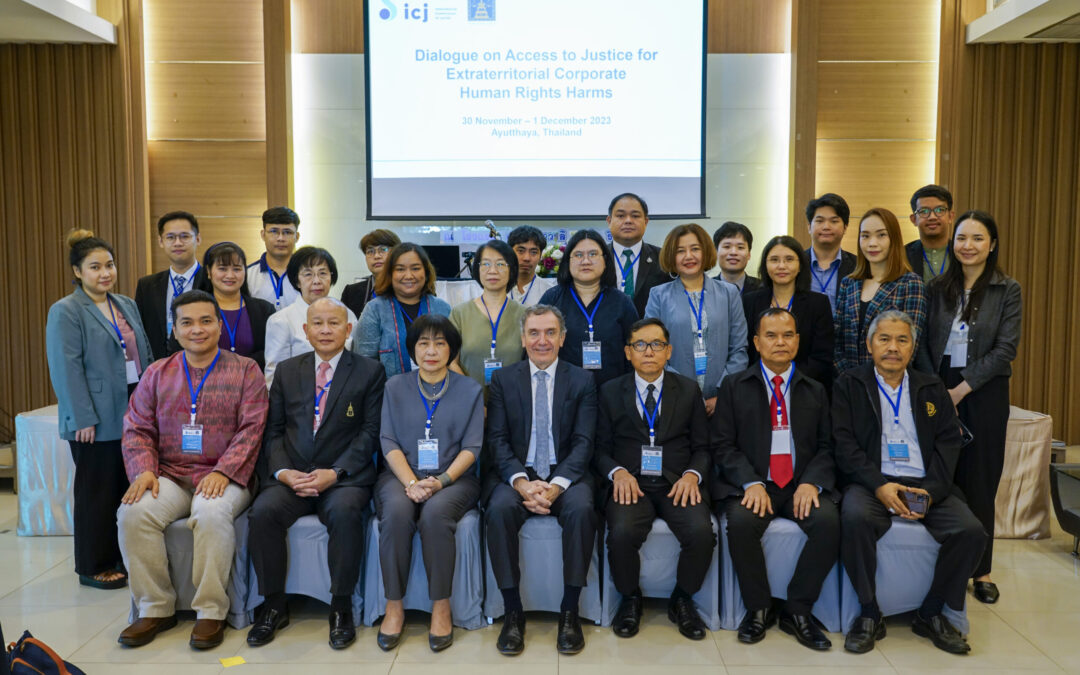
Thailand: Authorities must do more to ensure access to justice and effective remedies for extraterritorial corporate human rights abuses
The conclusion drawn at a workshop hosted by the International Commission of Jurists (ICJ) and Thailand’s Ministry of Justice on 30 November and 1 December 2023, in Ayutthaya province, was that Thailand should step up efforts to provide real access to justice for victims of corporate human rights abuses involving Thai companies abroad. This is imperative to make sure that Thailand meets its international legal obligations and fulfills the commitment it made in adopting a National Action Plan on Business and Human Rights Phase 2 (NAP), aimed at regulating the conduct of Thai companies abroad.
The workshop advanced a crucial component of the set of action points outlined in the NAP, engaging nearly 30 members from the justice sector, relevant authorities across various departments, academics, lawyers, and civil society actors.
“This workshop holds particular importance as it contributes to the global initiative aimed at addressing the lack of human rights regulation and the accountability of transnational corporations, a significant gap in human rights protection,” remarked Santiago A. Canton, ICJ’s Secretary-General in an opening statement.
“The state’s obligation to prevent human rights abuses committed by the companies it may influence does not stop at the border. The adoption of the Maastricht Principles in 2011 revealed evidence of State obligations to protect economic, social, and cultural rights beyond its borders, including in the context of corporate conduct, and this obligation binds the judiciary of the State. These principles have subsequently been confirmed by several jurisprudences of the UN treaty bodies,” said Sandra Epal Ratjen, ICJ’s UN Senior International Legal Adviser.
During the workshop, participants discussed existing challenges, covering areas such as corporate veils, conflicts of law, jurisdictional issues, statutes of limitations, and remedies.
“When an abuse occurs, the legal separation of corporate entities often allows parent companies and their representatives to evade responsibility for human rights abuses committed by them, leaving victims with no means to enforce compensation awards,” said Sanhawan Srisod, ICJ’s Legal Adviser.
“Courts in the parent company’s home country may serve as an alternative forum for claims seeking remedy or reparation. However, affected foreign citizens generally encounter greater barriers than Thai citizens in accessing justice due to several reasons, including language barriers, lack of understanding of the Thai legal system, financial constraints, short statutes of limitation, and the unavailability of access to legal aid, local lawyers, and internal corporate documents,” added Srisod.
Proposals from the participants included amending laws to shift the burden of proof, especially when critical facts or documents necessary to resolve a claim reside exclusively within the knowledge of the corporate defendant. This involves considering the potential influence parent companies exert over their subsidiaries in relevant actions. Other recommendations involved extending the statute of limitations for cases involving victims of transnational corporate human rights abuses, acknowledging the existence of corporate veils under Thai law, strengthening the enforcement of foreign judgments against parent companies in Thailand.
Effective measures aimed at ensuring remedies could include requiring businesses to obtain insurance coverage or establishing preventive remedial funds for Thai businesses before embarking on overseas investment. The eligibility criteria of existing funds and grievance mechanisms could be widened within Thailand to explicitly allow affected persons outside the country access to such remedies and mechanisms. There were also suggestions to explicitly broaden the scope of duties of the National Human Rights Commission of Thailand (NHRCT) to investigate and reconcile abuses occurring abroad.
Further recommendations included establishing standards for remedies with a human-centered approach and exploring the implementation of social sanction measures.
Participants considered how best to implement measures through bodies such as the Securities and Exchange Commission (SEC) and the Board of Investment (BOI), whose representatives attended the Workshop. This encompassed proposals for sustainable disclosure of corporate information to both the SEC and BOI. Additionally, there were suggestions to strengthen the BOI’s role or assign a permanent mandate to the NAP Committee for overseeing Thai investments abroad. Participants also explored the idea of incorporating human rights challenges faced in foreign investment as mandatory disclosure points in the SEC’s One-Report, which listed companies are required to submit annually. Furthermore, there were discussions regarding the Stock Exchange of Thailand (SET) assuming a more influential role in regulating transnational corporations.
Background
Thailand’s National Action Plan on Business and Human Rights Phase 2 (2023-2027) outlines various activities within the Action Plan on Cross Border Investment and Multinational Enterprises.
Its Action Point 1.3 designates the Ministry of Justice, supported by the Ministry of Foreign Affairs and the Office of the Attorney General, with the responsibility of conducting a study. This study aims to offer recommendations for amending laws or establishing measures aimed at ensuring access to the justice system and effective civil, criminal, and administrative remedies for communities, both locally and overseas, affected by the operations of Thai companies or state enterprises abroad.
This workshop was the second of its kind. The first meeting was conducted on 10 and 11 September 2022 by the ICJ and Thailand’s Ministry of Justice.
Speakers at the Workshop included:
- Darunee Paisanpanichkul, Deputy Dean, Faculty of Law, Chiang Mai University
- Ruangsak Suwaree, Director-General, Rights and Liberties Protection Department, Ministry of Justice
- Sandra Epal Ratjen, Senior International Legal Adviser and UN Representative, ICJ
- Sanhawan Srisod, Legal Adviser, ICJ
- Santiago A. Canton, Secretary-General, ICJ
- Sayamol Kaiyoorawong, National Human Rights Commissioner of Thailand
- Teerachai Sanjaroenkijthaworn, Co-ordinator, Extra-Territorial Obligation Watch Coalition
Contact
Sanhawan Srisod, ICJ Associate International Legal Adviser, e: sanhawan.srisod@icj.org
Further reading



